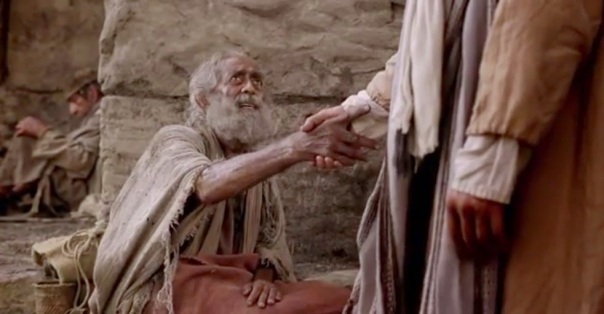It is a tough era for building a trust system. When that idea first got going with us, maybe it was not really much of “a thing” because people wanted it and thought it was possible. Now trust has almost disappeared and building a trust system might be “THE thing” because it seems so impossible. Many people are wondering if we can believe in trust again, much less build it. But trust is the basis of Christian relationships, with God and others. How can we do without it?

David Odom executive director of Leadership Education at Duke Divinity, wrote a blog post about trust a week or so ago that is still making us think.
Maybe it makes me think because Gwen and I started watching The Honorable Woman from the BBC on Netflix, upon the advice of someone we trust. It is a series whose stated premise is, “It’s no wonder we don’t trust anyone.” I DO NOT recommend this series — we can turn on the news for lies, unfortunately. But it did make me wonder if we can build the trust system we desire if most people have a traumatized trust center in their soul.
The entire United States is having trust issues, and experience what troubles everyone. Donald Trump is a big tip, but he is not the whole iceberg of mistrust waiting to sink our love. The president’s lies are just so well documented (by what he deftly labels “fake news” outlets), they are hard to avoid. People are no longer mincing words about them. Journalists regularly point out the authoritarian tactic labeled the “Big Lie.” Telling the big lie is a technique dictators use to gain power. After WW2 the agency that preceded the CIA warned the U.S. population against dictator tactics. They actually issued a report that outlined the primary rules evil people follow for lying big:
Never allow the public to cool off; never admit a fault or wrong; never concede that there may be some good in your enemy; never leave room for alternatives; never accept blame; concentrate on one enemy at a time and blame him for everything that goes wrong; people will believe a big lie sooner than a little one; and if you repeat it frequently enough people will sooner or later believe it.
This sounds familiar, right? It is now well established that the President is an inveterate liar, a lesson first learned during his decades as a businessman and reality star, then re-affirmed during his presidential campaign, and then reiterated once again with his inauguration, starting with his Big Lie about the size of the crowd on that day. At the moment, Trump’s favorite lie is that the whole Russia situation is a hoax. For instance, last Thursday, just hours after high-ranking members of his administration confirmed that Russia is meddling (and has meddled) in U.S. elections, Trump made this declaration before a rally crowd in right here in Wilkes-Barre, Pennsylvania:
In Helsinki, I had a great meeting with Putin. We discussed everything…We got along really well. By the way, that’s a good thing, not a bad thing. Now we’re being hindered by the Russian hoax — it’s a hoax, OK?
This is not just “political talk.” Trump greatly contributes to the cloud of mistrust in which we wander every day. When the Leadership Team of Circle of Hope started talking about some momentous next steps for the church last month, a few people automatically assumed they were going to receive poor treatment from faceless leaders somewhere (even though they were sharing their fears with members of our Leadership Team face to face!). Even though we say we are building a trust system, there are a lot of people who are finding that dubious prospect in this disappointing era of U.S. history.
So the article from David Odom was timely, if irritating. We need to think about building trust, right now! It is irritating to have to do it, since we have already been doing it. But as soon as we build some trust, some emissary from the world comes along and plants a bomb in it. So we are always REbuilding shattered trust. And for increasing numbers people, we are not rebuilding, we are building from scratch, since they never had much trust to begin with.
Trust begins with safety
Odom says, “To cultivate trust, leaders must contribute to a sense of safety, commit themselves to listening, empower others to act, learn from their mistakes, and promise only what they can deliver.” The leaders of our church definitely think they are doing these things until someone hints they are not — which someone usually does.
What Odom discovered in his consultations with churches is that the low trust among congregants exhibited before hiring him as a consultant transformed into remarkably high trust in him as soon they shared stories of pain and loss. Once people had a chance to tell their stories, even to a stranger, they began to discover what was really important to them.
His work was to figure out how to get people to listen to each other, across their dividing lines. For all the therapists listening, this probably sounds just like marriage counseling. And in the church, building trust is like marriage counseling because we share a love covenant as members of the body of Christ. That covenant comes complete with all the passions we bring to relationships with our lovers.
Odom laments that today many people in the United States don’t remember a time when they were heard. Some feel that the American economy and society have left them far behind. Others have been silenced for generations, their stories missing from history books and media coverage. As a result, many increasingly believe that they can be understood only by people like themselves. So, by extension, people not like themselves feel dangerous. For protection, some people hide, while others lash out.

Building trust is a crucial task
In this moment, engendering trust is one of the Jesus follower’s most important and difficult tasks. This task is not only about one’s personal truthfulness and reliability but also about one’s leaders and entire community. We can start with a foundation of credibility and transparency. But before some people can even consider those things, they need a sense of safety.
We call ourselves a Circle of Hope, but we know that before people can get over how hopeless they feel, they need to feel safe. We can do something about what they feel interpersonally, but factors (like Donald Trump) outside our influence can make everything feel dangerous. In the TV show I referenced above, the main character sleeps in a “safe room,” she has been so traumatized. After watching such a show (and they are legion), then listening to some news, we all feel the need for a safe room! The impact of systemic oppression that has kept people at the margins of organizations, communities and society is now being named more clearly for those in power. Marginalized people have always known they are not safe; now, more privileged people feel unsafe as well.
One would hope that if we provide opportunities for relationships, trust will be an inevitable product. But many people can’t get into relationship because they do not trust themselves, others or the system to allow love. The vulnerability is just too much for them. That’s why many people avoid cell groups, can’t stand a Sunday meeting of less than 50 people, and often feel the whole church is too demanding to be tolerated.
Odom gave an example how he discovered this preliminary step into safety on the way to trust when he was a “freshly minted” church consultant. After a long meeting, a church leader pulled him aside and said, “If you were assisting my company, I would fire you. We trust you more than we trust ourselves. Don’t promise what you cannot deliver. We need you to be dependable.”
He was trying to design a good process to help the congregation after it had been betrayed by its pastor. But he learned that before the people could buy into the process, they needed to feel safe with the leader of the process. They had to place their confidence in that person and experience the leader’s confidence in them. They did not trust themselves to have difficult conversations alone and needed the leader to bridge this gap of trust. In conflict situations all over the world, where trust is broken, Christians often make themselves the bridge. One mediator in South Africa taught me a long time ago that being a Christian is often allowing yourself to be the bridge on which both sides walk toward reconciliation.
There are some basic behaviors that can build trust
Even among our church, where we specialize in letting love rule, we face mistrust. Any action is subject to scrutiny. Any situation can become primarily about trust. We must admit how challenging this is. (I am trying to do that with this post). Plus we need to admit the emotional consequences of needing to build trust. At best, it feels irritating.
How can we all build trust – especially our leaders? Odom has important ideas (here elaborated for us):
- Let safety-building be a priority, even if you think it should be a given. Analyze every situation through the lens of how its resolution will increase or decrease the sense of safety the weakest are longing to experience.
- Listen, listen, listen. What is everyone saying? – not just the people with whom you feel safe. What feelings are underneath the words? What is the history behind the concern? Listen for systemic injustice that often goes unnamed. We are not necessarily agreeing with people by listening to them, but we are offering a key ingredient of safety: acceptance.
- Empower people to solve their own problems. There is not some systemic tinkering that can be done to make every problem go away. We can’t have a meeting or pass a resolution and assume everything will be better — sometimes yes, often no. Given the multiple and deep causes of the challenges people face every day, the leader is not the only person who can or should act. We are all in the trust-building project together.
- Name mistakes and lessons learned. This is one reason we often talk about our failures. People are deciding right now how to talk about our present situation – is it a time of failure? adjustment? growth? transition? All the above? There are many things to learn. We will keep collecting stories of our mistakes as well as our successes. We will apologize and we will celebrate.
- Don’t promise what you cannot deliver. This is one reason we are serious about our covenant and determined to live according to our agreements, not according to whim of the leaders or the tyranny of the most recent majority. We want to keep naming our intentions and understand our limits. We’ll keep pushing on the limits, but we will know they are there. People often walk into one of our meetings looking for a safe place and run into the fact that we are new, we are surprising or disappointing, and they don’t fit in yet. Rather than fretting about that inevitable reaction, we will keep loving those strangers who also feel we are strange.
Cultivating trust requires consistent work over time. Maybe that’s why it often feels irritating. Trust often ebbs and flows and is influenced by personal, organizational and societal experiences. To keep building trust, we need to admit our daily responsibility to cultivate it – most of the time, cultivating trust would be a good first step when you greet your mate in the morning, when you enter your next cell meeting, or when you see who is at the Sunday meeting.
Helping each other recognize how important trust is may be critical to any claim we make to be authentic followers of Jesus — who has trusted us with His own Spirit! Our future can take many good roads if there is trust. Many processes can work and and varying plans can come to fruit if there is trust in God and trust in others. But most processes will go nowhere and most plans will never get off runway if they are overloaded with the terrible cargo of mistrust. So as we navigate the stormy seas of Trump and our own turmoil, let’s keep steering toward safety in our Savior and cooperate as He creates a safe place for people to explore trust. Those are steps we can all take in building a trust system — thank God we can trust Jesus for what comes next!





















